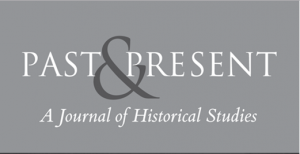by the Past & Present editorial team
Dr. Vanessa Ogle (University of California, Berkeley) whose article “‘Funk Money’: The End of Empires, The Expansion of Tax Havens, and Decolonization as an Economic and Financial Event” is currently avaliable on advanced access and will be published in the November 2020 edition of Past & Present, has been interviewed by International Politics and Society. See a short snippet of their interview below, and visit their site to read the full piece.
Q. When we hear “decolonisation”, we may first think of mass protests, independence movements, armed conflict, racism, migration and so on. But you attempt to reconceptualise it as an economic and financial event that led to the expansion and consolidation of tax havens. How did you come to research that and why is it important?
A. I came across the fact that people, upon leaving the colonies, sent money to tax havens when I was working on a broader book project on the history of the offshore world, offshore finance and tax havens. And this history goes back much further.
It basically starts in the late 19th century. Back then, tax havens such as Switzerland and certain US States really come into their own and then proliferate during WWI and in the inter-war period, when progressive income taxes are introduced in many places. Havens then expand again after World War II, which of course then coincides with decolonisation.
I myself as well as others who have thought and written about the history of offshore and tax havens, have always been aware of this simultaneity of decolonisation and the proliferation of tax havens and the growth of offshore finance.
What I found, upon doing the research, going to archives and reading documents, was that there was a much more of a direct connection between the expansion of tax havens and decolonisation than previously thought. The growth of tax havens in this period was initially propelled by funds that were sent to these emerging offshore places from colonies in the process of becoming independent. What I found in bank archives and other materials was that white officials, settlers, businessmen and others basically saw the writing on the wall. They realised that there would probably soon be an independent country with a government that was potentially hostile to hosting foreign enterprises.
They then used lawyers and bankers operating in places like Kenya, Algeria and so on. They used these emerging industries to basically move money out of the colonial world. That’s when I began to think of decolonisation really not just as a political conflict where independence movements form ideas, political demands and often violently clash with colonial powers, but also a movement of money that essentially follows the political and, if you want, intellectual process of independence movements.
This is a short section of an interview published by International Politics and Society. Please visit their website for the full piece. Dr. Ogel’s Past & Present article can be read here.

